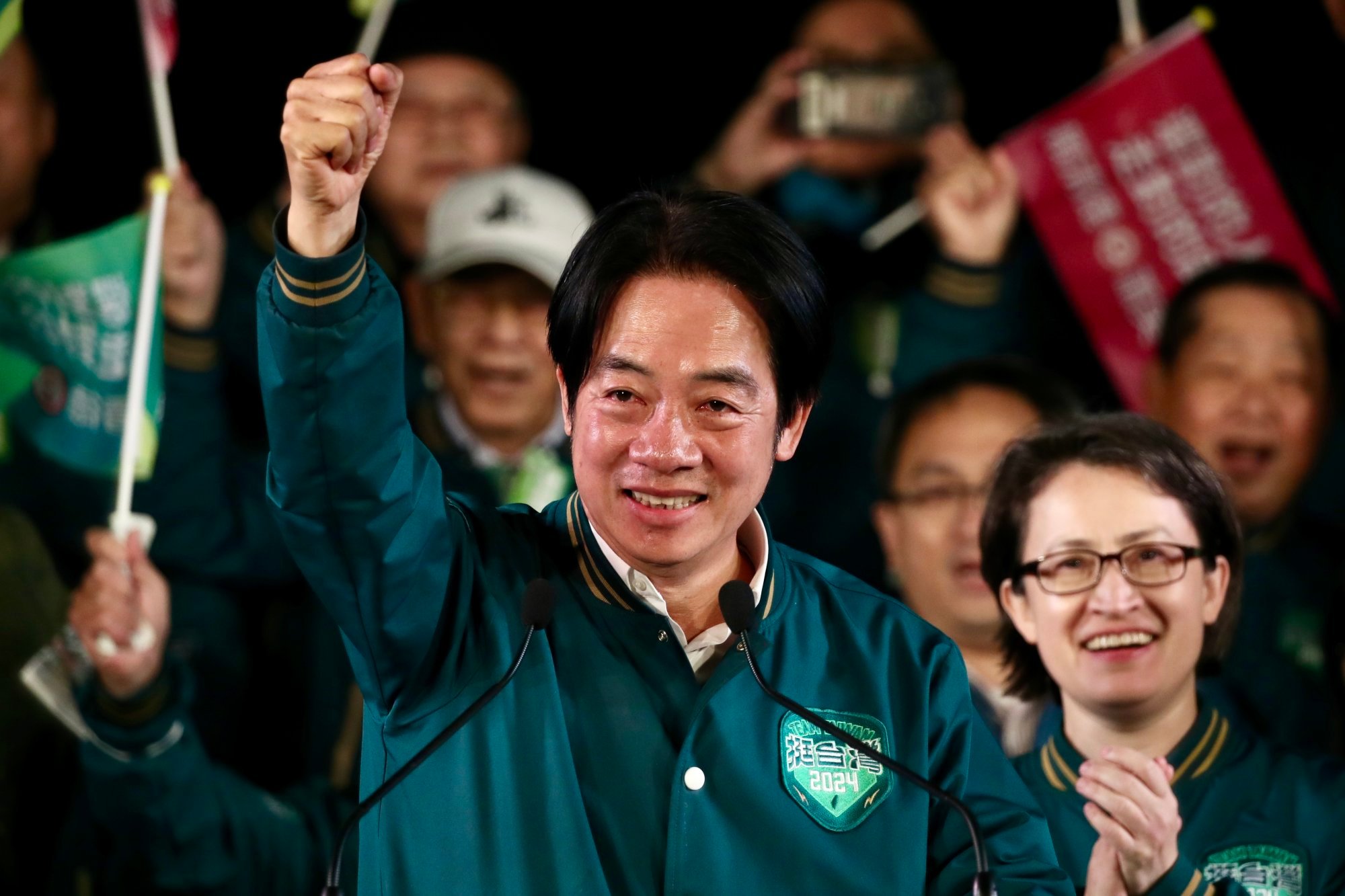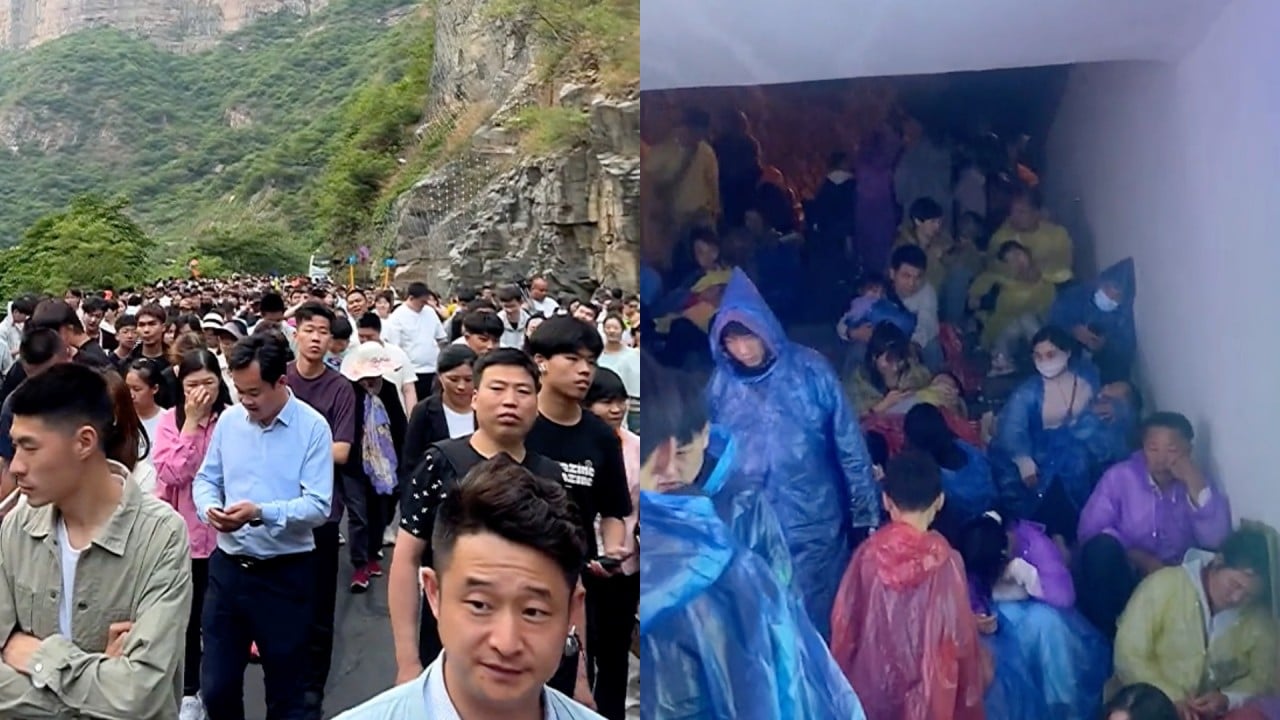For young mainland Chinese, Taiwan feels increasingly distant because of pandemic, politics and travel bans

The only group of mainland Chinese now allowed to visit Taiwan’s main island are those who have been living overseas for at least a year – a group that includes those based in Hong Kong and Macau.
When Patrick Wang reached the one-year anniversary of his move to Hong Kong in January, he immediately applied for a visa and planned his first visit to the island that produced some of his favourite childhood entertainment.
“The post-90s generation grew up listening to songs by [Taiwanese artists] Jolin Tsai, Jay Chou, and Wilber Pan while [local television channels] played Taiwanese dramas every day when I was in primary and middle school. Our generation was really influenced by the culture,” said the 27-year-old, now working as a fashion editor in Hong Kong.
Mainland tourists need the approval of both mainland and Taiwanese authorities to travel to the island. Beijing first allowed individual mainland Chinese tourists to travel to Taiwan in 2011, with residents of 47 cities granted access to the island.
However, most third-tier cities – including Wang’s hometown in Hunan province and the city where his university was located – are not on the list. Wang hoped for the day when his city would join the list and make him eligible for individual travel to Taiwan, “but the chance never came”.
Beijing suspended travel to the island by individual mainland tourists in 2019, citing strained cross-strait ties as the reason. Things got worse with the Covid-19 outbreak in early 2020, when Taiwan suspended arrivals by all visitors and Beijing suspended all group travel.
Both sides reopened their borders after the pandemic – but largely not to each other.
Beijing also pledged to open group tours to Fujian residents when direct flights resume between Fujian’s Pingtan island and Taiwan – an offer Taipei rejected as limited and not reciprocal.
Taiwan’s Minister of Transportation and Communications Wang Kwo-tsai commented a day after the announcement, saying the scope of the proposal was “too narrow”, and the government needed to discuss further.
Beijing’s Taiwan Affairs Office on Wednesday urged the DPP to meet “strong calls from the public on both sides to normalise cross-strait people exchanges” and “lift all unreasonable restrictions and bans as soon as possible”.
The office blamed Taiwan’s ruling party for ignoring calls and “blindly smearing and attacking the mainland” out of political interest.
Patrick Wang, the Hong Kong-based fashion editor, said he met few other mainlanders while walking around Taipei landmarks such as the Chiang Kai-shek Memorial Hall and the snack-filled Ningxia Night Market.
“When we were checking in at the second hotel, the receptionist was a bit shocked and asked how we [could] travel over,” he added.
Wang Yingjin, director of the Centre for Cross-Strait Relations at Renmin University in Beijing, said the mainland’s resumption and expected expansion of cross-strait exchanges “expressed kindness”.
He said further steps would hinge on the attitudes expressed in William Lai’s inauguration speech.
“If he makes ‘Taiwan independence’ remarks in his speech on May 20, it will certainly affect the mainland’s attitude towards restarting cross-strait individual travel,” he said.
Beijing claims Taiwan as part of its territory and has not ruled out the possibility of using force for reunification. Most countries, including the US, do not recognise the island as an independent state but are opposed to a change in the status quo by force.
Ho Chih-yung, a professor of general education at National Tsing Hua University in Hsinchu, south of Taipei, said he believed Lai would keep a “low profile” at the inauguration as his Democratic Progressive Party did not attain a majority of the seats in the legislature.
He said the new administration would be the right time to reinstate previous travel rules as a step towards preventing a “downward spiral” in cross-strait relations.
In February, Taipei curbed a plan to resume group tours to the mainland after Beijing adjusted a civil flight path near the sensitive median line in the Taiwan Strait, citing Beijing’s failure to reciprocate the goodwill gesture.
After Beijing’s April announcement, the island’s transport minister said “it was too little for the mainland to only allow Fujian residents to visit Matsu, which means that he actually hopes for more … and that represents the government stance”, Ho said.
Ho said he believed tourists from neighbouring countries and the West were insufficient to support Taiwan’s travel industry, but said there were previous issues with tourism from the mainland, such as disturbances to locals and travel company monopolies, that need to be addressed when cross-strait travel resumed.
Wang of Renmin University said the reduction in people-to-people and economic links in recent years had added to the distance between people on both sides, adding that “the mainland general public’s favourability towards Taiwanese has declined as their general agreement on ‘one China’ has declined”.
While cross-strait exchanges will gradually resume, they will “hardly attain the scale and level of the exchanges during Ma Ying-jeou’s administration,” he said, referring to the island’s former president.

Echo Li, a magazine editor based in Beijing, was one of hundreds of thousands of mainland tourists to take advantage of the short-lived policy.
“I felt quite lucky to have caught the last chance before the pandemic to travel to Taiwan,” the 27-year-old said.
Since the halt of cross-strait tourism, “there has probably been a feeling of distance from Taiwan”, Li said, adding that since the pandemic, the sense of distance has been “not only with Taiwan, but the world”.
Not all young mainland Chinese have such a positive view of Taiwan, and an affinity for Taiwanese entertainment does not necessarily translate to a willingness to travel to the island.
Molly Wang, a postgraduate student from mainland China, recalled the scepticism she faced after being invited on a trip to Taiwan with friends while studying abroad.
In 2018, she spent days touring the island’s southwestern coast, from Kaohsiung city to the southern tip of Kenting, and said she remembered the beaches to be “exceptionally pretty”.
While she was fond of Taiwanese romance dramas and thought of the island as a romantic place, she said there were some contradictory stereotypes of Taiwan among those in her age group.
“I was actually a bit worried because I heard there were many pro-Taiwan independence forces and that sounded scary … or [the locals] might treat me badly when they heard my mainland accent,” she said.
“But [locals] were actually really friendly to me … and I did see pro-independence flags and Falun Gong, but they did no harm to me,” the 24-year-old said, adding that her current self might not want to travel to Taiwan if she had not already experienced it in person.
The Jiangxi province native said her friends – especially those who grew up in inland China like she did – seldom put Taiwan on their list of travel destinations as they were unfamiliar with the culture on the island.
“They had a feeling that they would need extra preparation and had to be cautious about their words and actions,” she said.

